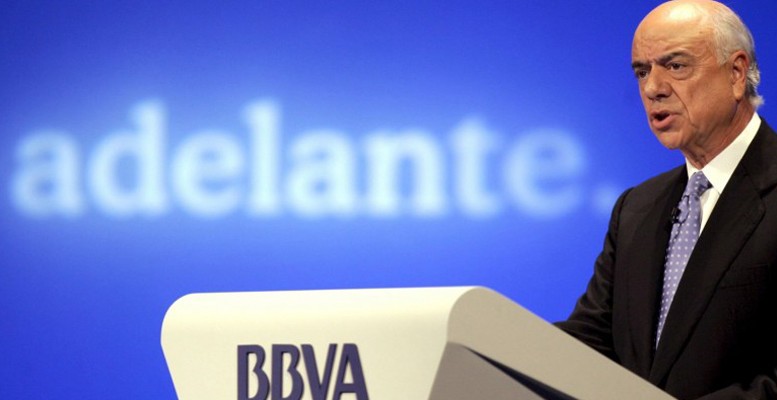Francisco López | BBVA chairman, Francisco Gonzalez , is the one who usually takes the lead in talking about the banking sector’s problems, without worrying too much about the criticisms he may receive. González was the one who most actively spoke out in international fora (in particular at the Institute of International Finance (IIF)’s spring meeting) about the bad situation of some of the savings banks, although by doing that he damaged the image of the whole Spanish banking sector; he continues to demonstrate his obsession about technology, although many believe (Ana Botin included) that personal contact is also fundamental for the banking business; and now he has taken up the banner of those who criticise the low interest rate policy: “They are killing us.”
The criticisms of the ECB made by BBVA’s chairman are shared by the European banking sector, but Draghi has reminded them that a central bank’s obligation is to ensure that inflation is controlled and there is greater economic growth which, in theory, is beneficial for the banks.
Francisco González took advantage of the presence of the elite of the international financial system at a forum in Madrid to complain about “how difficult it is nowadays to be a bank in Europe” and the fact that banking union has been created by using “the trick of not having greater political integration.”
Apart from zero interest rates, the banking sector’s other warhorse is the technological revolution. In the first place, there’s the competition from giants like Google or Amazon, who are the ones who control more information. And in the second, there is the advance of the fintechs.
González has justified the frequent changes in his management team in the following way: “We had to tell really good traditional banking people that they were no longer useful in the digital world.”
Santander chairwoman Ana Botin recognises the importance of technology, but without forgetting the personal touch: “We are all more flexible now with regard to providing service for our clients. But personal relationships are still very important, in both wholesale and retail banking; in Santander, we have over 100,000 people speaking with clients every day because people want to see people to do their business.”
According to the ECB, the solution to the banking sector’s profitability problems is cross-border mergers.





